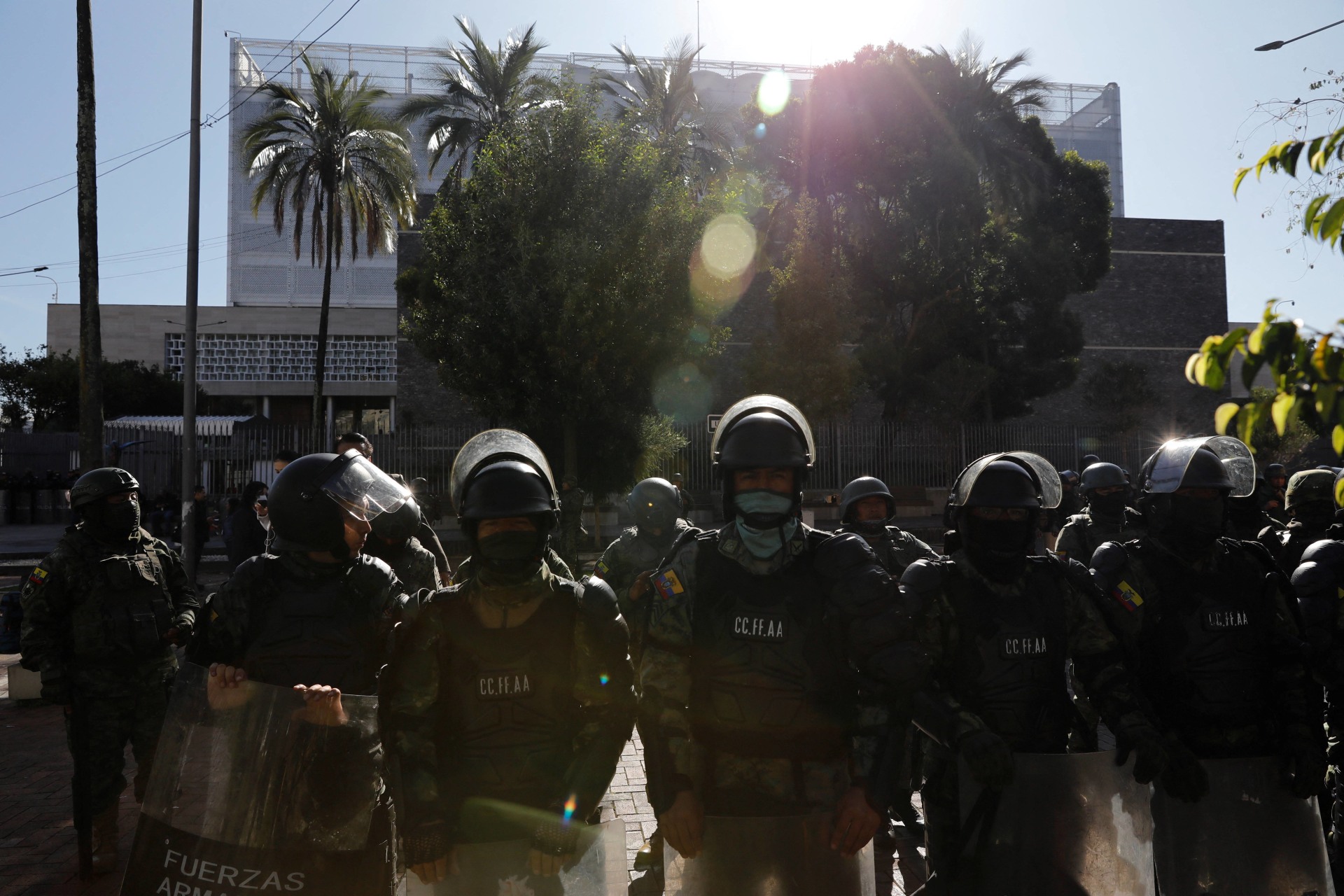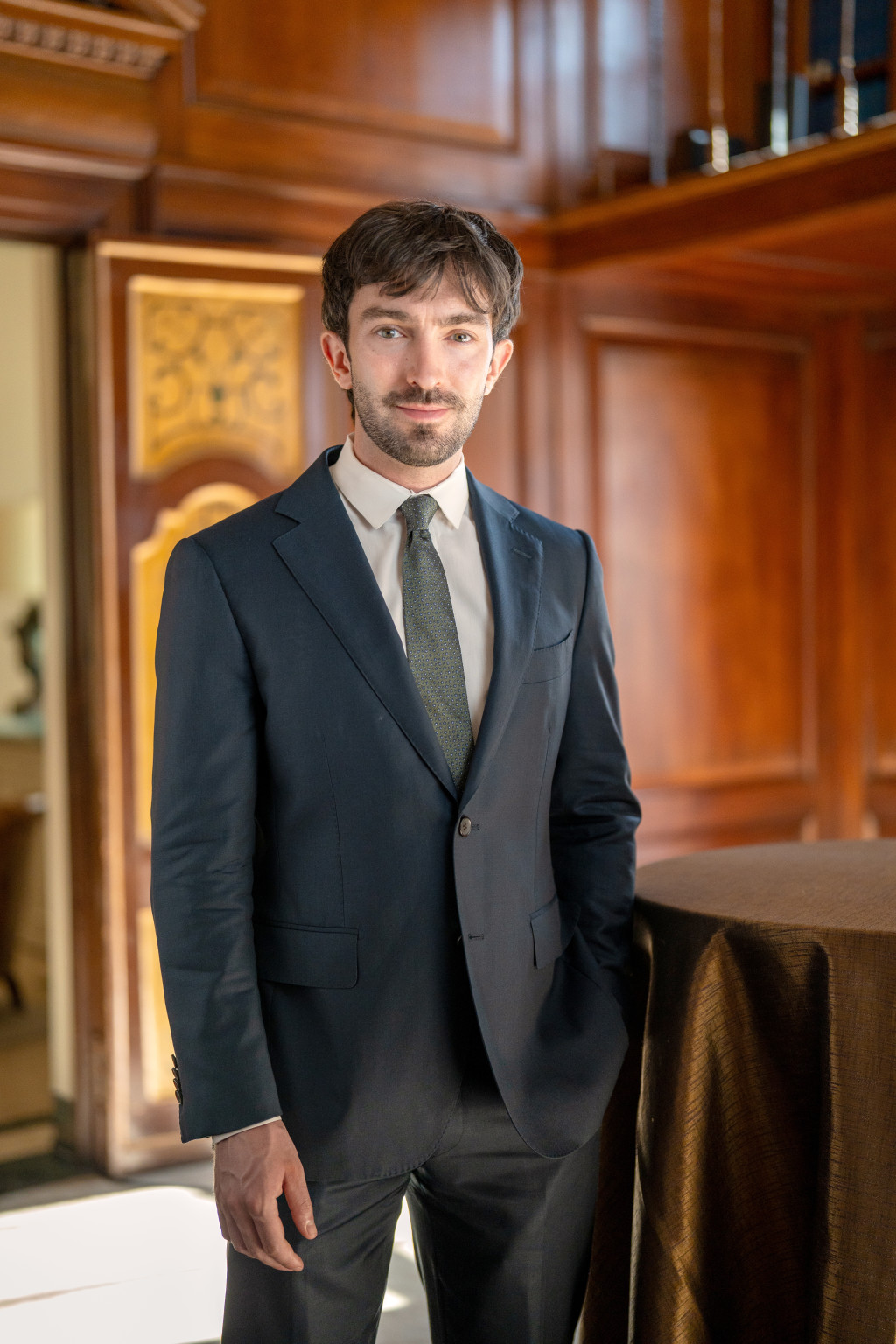A Surge in Crime and Violence Has Ecuador Reeling
Ecuadorians say crime and public authorities’ inability, or unwillingness, to stop it is what they are most worried about.
Originally published at World Politics Review

Ecuador might be caught up in a political crisis, with President Guillermo Lasso having dissolved the opposition-led National Assembly and called snap presidential and legislative elections for later this year. But if you ask most Ecuadorians what they are worried about, they won’t tell you politics.
They will say crime and public authorities’ inability, or unwillingness, to stop it.
Spend a few days in any major Ecuadorian city, and it won’t take long to understand why. In the port cities of Guayaquil and Esmeraldas, where the violence is most intense, massacres, targeted assassinations of police and public officials, and car bombs have become weekly occurrences.
In parts of Quito, the capital, shops now close early, and police stop patrolling at night. Across the country, extortion networks are strangling businesses large and small—even in the remote Galapagos Islands.
For many Ecuadorians long accustomed to relative safety compared to neighboring states, the crime surge has turned life upside down. For decades, Ecuador was one of Latin America’s least violent countries. Now it has the region’s fourth-highest homicide rate—higher even than Mexico.
Gone are the days when Ecuador was known as “the island of peace” due to its location between historically war-torn Peru and Colombia. Now, the country looks increasingly like its neighbors at their most violent—only with a much weaker state that increasingly bears the hallmarks of criminal cooptation.
From ‘Island of Peace’ to Epicenter of Violence
Ecuador’s violent crime surge began in earnest in 2020 with a series of prison massacres carried out by competing gangs—an eerie harbinger of what was to come outside the prison walls.
But the country’s transformation into a crime hub was by that time years in the making—partly the result of bad luck and partly of bad policy.
Several chance factors aligned to make Ecuador a hot spot for organized crime after 2016. That year, the government of Colombia signed a peace agreement with the Revolutionary Armed Forces of Colombia, or FARC, which officially ended the guerilla group’s 53-year-old insurgency.
The peace accord contributed to a period of stability for Colombia, but it had quite the opposite impact on Ecuador. The FARC had long maintained a de facto monopoly on lucrative cocaine trafficking routes from southern Colombia to Ecuador’s Pacific ports, where it tended to keep violence to a minimum.
The group’s demobilization opened up a power vacuum, even as Colombian coca production reached an all-time high. Ecuadorian groups began to battle to fill the void. Sensing opportunity, foreign criminal groups soon followed suit. The Sinaloa and Jalisco Nueva Generacion cartels, already in open war in Mexico, recruited local proxies in an effort to seize the upper hand in Ecuador. The Albanian mafia, which had long helped the FARC ship its cocaine to Europe, established a presence of its own in the country.
For criminal groups, Ecuador’s high-quality road network, dollarized economy and lack of visa requirements for foreign nationals also lowered the costs of doing business.
A devastating earthquake on the country’s Pacific coast in 2016 brought an influx of soldiers and first responders to the area, unintentionally causing criminal groups that had until then been concentrated there to scatter across the country and open new fronts in the battle for control of illicit activities. Then, to make matters worse, a drop in the price of oil—the country’s main export—and the steep economic downturn due to the COVID-19 pandemic fed criminal groups a steady supply of young, jobless recruits.
As intergang feuds picked off once-powerful criminal bosses, the criminal landscape grew increasingly anarchic. Violence intensified.
One Wrong Move After the Other
The policy choices of successive Ecuadorian government made the problem worse.
During his decade in office from 2007 to 2017, populist former President Rafael Correa reduced Ecuador’s homicide rate to a historic low through a combination of increasing policing, reducing poverty and inequality, and allowing the countries’ gangs to transform themselves into cultural associations if they left behind violence.
But Correa also planted a ticking time bomb by weakening Ecuador’s capacity to confront transnational narcotrafficking, which he regarded as a problem for drug-consuming countries like the U.S. and European Union member states, not Ecuador.
In the name of standing up for national sovereignty, Correa closed a U.S. military base in Manta, Ecuador, and ended cooperation with the U.S. Drug Enforcement Agency. As a result, Ecuador’s maritime exclusive economic zone—the fifth-largest in South America, covering over 1 million square kilometers of ocean—was left effectively free of surveillance.
Long-serving members of the police, security experts and an ex-Correa government official all told me that narcotrafficking vessels began flocking to the area from better-policed Peruvian and Colombian waters.
It wasn’t Correa’s only blunder. Contrary to his image as a fierce critic of neoliberalism, Correa also put Ecuador’s ports and airports into concession to private owners, making it difficult for the state to enforce rules mandating the screening of inbound and outbound cargo. He dismantled an elite investigative team of the national police that he regarded as disloyal. In fairness, the unit habitually escaped civilian control, but it was by far Ecuador’s most professional when it came to criminal investigations.
But the real test came under Correa’s successors—and they did no better. Former President Lenin Moreno, his immediate successor from 2017 to 2021, had served as Correa’s vice president but broke with him once in office. He then focused his term on purging Correa’s loyalists from the state, loosening the presidency’s control over other state institutions and steering Ecuador back into the geopolitical orbit of the United States.
Security policy came as an afterthought—and it showed. Moreno scrapped Correa’s Ministry of Justice, habitually used to control judges, and replaced it with an agency that quickly lost control of the country’s mega-prisons housing tens of thousands of inmates. Those prisons then became forward operating bases for organized crime groups and the staging ground for their turf wars. Since February 2021, more than 400 inmates have been killed inside prison walls.
Meanwhile, a prolonged economic downturn and a shift toward fiscal austerity has resulted in cuts to social spending, which tore at Ecuador’s social safety net. Violent mass protests against austerity measures, which erupted in 2019 and 2022, further chipped away at public order and state legitimacy.
There are now disturbing signs that organized crime has coopted parts of the state. No one can account for why stockpiles of grenades and high-powered weapons seem to freely enter prison walls, but several security experts and police officials I interviewed cited alleged corruption by prison authorities and the private companies they contract.
Provincial judges grant writs of habeas corpus to release suspects in organized crime cases from provisional detention at alarming rates. High-ranking members of the police and judiciary attest to the existence of “armies of lawyers” in every Ecuadorian province who have finessed the art of procuring impunity.
Criminal Capture
By the time Lasso, a “small government” conservative, was elected president in 2021, Ecuador was hurtling into the eye of the storm.
But Lasso failed to change course and avert disaster. He spent virtually all of his very limited political capital pushing economic reform bills through a hostile, opposition-led National Assembly. Meanwhile, he seemed to see rising violence as a war between Ecuadorians and the criminals, as he described it in a since-deleted tweet. In contrast, Ecuadorians saw a paralyzed state, unwilling or unable to help them. Cases of vigilante justice, often captured in grainy smartphone footage, began to spread.
By the time Lasso did act, it was too little, too late. In February, he called a referendum on constitutional reforms related to the fight against crime, but muddied its content by tacking on self-serving institutional reforms. The referendum went down in defeat, hobbling Lasso politically and contributing to the sequence of events that led him to dismiss the assembly last month.
Lasso later legalized the individual possession of firearms for self-defense and decreed several criminal groups terrorist organizations, granting the military a larger role in the anti-crime fight. But both measures are largely cosmetic. Very few Ecuadorians make enough money to afford handguns. And the military is loath to take on the task of knocking down doors and fighting criminals on city streets, given the risk of facing prosecution for rights abuses.
Most alarming of all, the Albanian mafia is alleged to have coopted members of Lasso’s inner circle. In January, the digital media outlet La Posta published a report based on a leaked police intelligence document attesting to an investigation into the possible mafia ties of several top government appointees. Two police generals were subsequently caught on tape discussing closing the investigation into the allegations in order to protect the president.
A legislative commission formed to investigate the case alleged Lasso new about the investigation since July 2021, but remained silent. Lasso has since asked for the police generals’ resignations, and the Attorney General’s office reopened the investigation in question. Even if Lasso is completely innocent, the scandal speaks to an alarming lack of vetting at the highest levels of the state. More concerningly, since the scandal broke, one top suspect has become a fugitive from justice. Another turned up dead, with signs of torture.
Elsewhere, organized crime appears to be making inroads fast. Multiple experts and public officials I interviewed spoke of rampant criminal financing in provincial and local elections held earlier this year, particularly in the coastal province of Manabi. An ex-director of the police’s anti-narcotics unit lost his U.S. visa after the U.S. ambassador, Michael Fitzpatrick, alleged the existence of “narco-generals,” an accusation echoed by several other high-ranking members of the security forces.
Even the military has been implicated. In 2018, a ton of cocaine was discovered in a car inside the military base in Manta, in what the air force described as an “isolated case.” Last November, 25 air force officials were sanctioned for damaging radar equipment purchased to stop narcotraffickers from operating within Ecuadorian airspace. The navy has been hit with one scandal after another related to alleged criminal collusions.
Ecuador’s political instability is doing the security situation no favors. Each new government tends to rebuild its security plan from scratch, while the criminal actors remain the same. With two general elections scheduled to take place in the next two years—the one to replace Lasso and the National Assembly later this year, followed by the regularly scheduled elections in 2025—there is even more uncertainty on the horizon.
For now, the top two contenders—Correia loyalist Andres Arauz and Indigenous leader Yaku Perez—have not focused heavily on crime. That could be their shared Achilles’ heel. Jan Topic, who has molded his image off that of El Salvador’s tough-on-crime president, Nayib Bukele, has already entered the fray. More are likely to come. But it remains doubtful whether any candidate has a comprehensive plan to reverse cooptation and collusive behavior in the military, judiciary and police—the most serious obstacle in Ecuador’s path.
“In 10 years, this could be a failed state,” one adviser to Foreign Minister Juan Carlos Holguin told me. If Ecuador doesn’t change course quickly, that time horizon might be overly optimistic.
